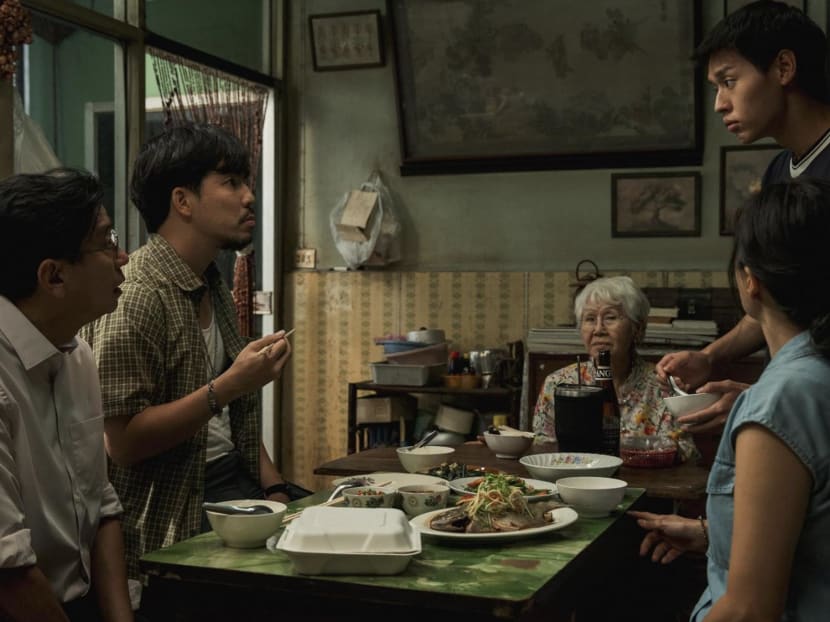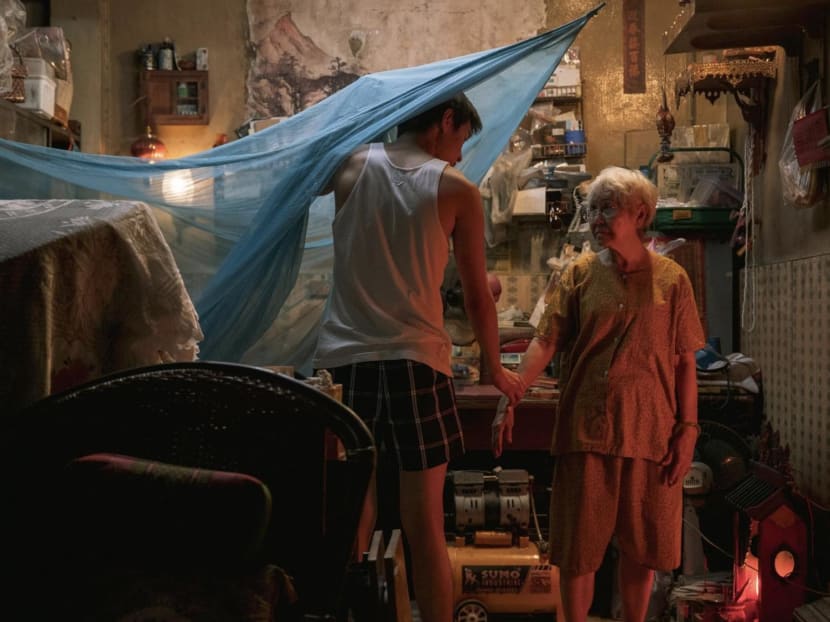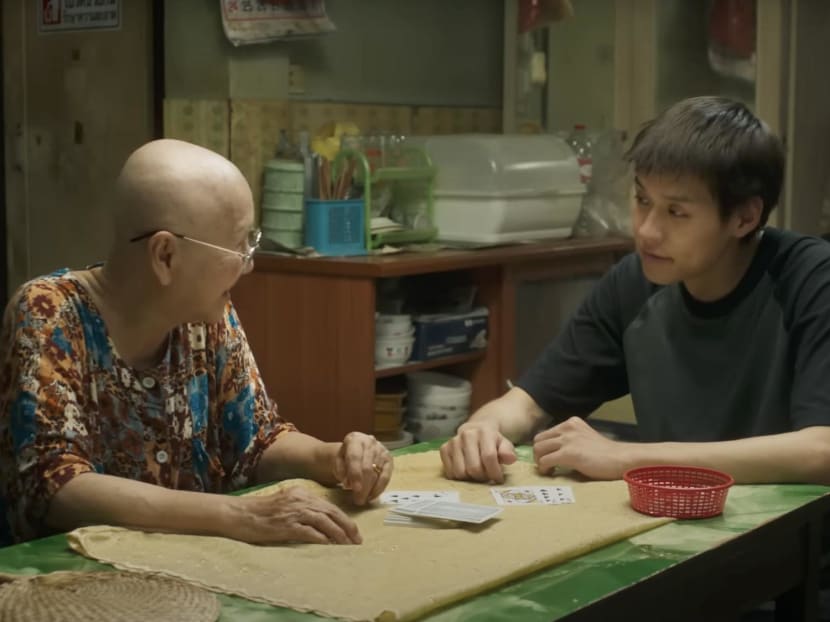Commentary: How to Make Millions Before Grandma Dies doesn't want to make you cry but to rethink meaning of family
Can familial love ever truly be free of filial obligation?

“Sad grandma movie” is a meme-y phrase popularised by netizens reference to How to Make Millions Before Grandma Dies — but really, the film isn’t about being or having a grandmother.

This audio is AI-generated.
How to Make Millions Before Grandma Dies isn't a "sad movie", but why did it make us all cry? A TODAY deputy editor delves into why this Thai movie was a surprise hit not just at the box office, but in all our complicated family feels.
I remember exactly when I first decided to see How to Make Millions Before Grandma Dies.
It was sometime in early April; some American friends were raving about the film on social media, having already managed to see it in festivals.
It seemed tailor-made just for me. Good-for-nothing youth casts himself in a caretaker role to his terminally ill grandmother to gain top billing in her last will and testament — the thrill of Ocean’s Eleven meets the emotional dysfunctionality of Everything Everywhere All at Once? I’m so seated.
Turns out I wasn’t the only one.
Within 11 days of its May 30 release, How to Make Millions had become Singapore’s highest-grossing Thai film of all time. As at June 30, it’s raked in S$5.01 million here — a number that’s still climbing as the film heads into its sixth week at local cinemas.
The movie hadn’t just taken off quickly, but intensely.
People were posting endlessly on social media about it: They hadn’t cried this much at a movie in years; they ran out of tissues halfway; it was the first time they’d visited a movie theatre with their families in years and everybody including their pet dog had wept.
Oh no. A sad movie.
No matter, I thought. After all, I don’t have a grandma relationship to cry and wail about.
NO GRANDMA, NO PROBLEM?
My maternal grandmother has lived abroad all my life. I’ve only seen her a handful of times, all in passing.
My paternal grandmother, I saw maybe once a year growing up. She was always in poor health and since we didn’t have any languages in common, we almost never interacted directly. She died when I was still a teen; prior to that, I hadn’t seen her in years.
I didn’t even go to the wake. I wasn’t asked.
Naturally, I was more interested in the “How to Make Millions” part of this film than the “Grandma Dies” part.
I figured: Whatever it is these people are reacting to, that’s between them and their own grandmothers. It shouldn’t have any real effect on me.
I brought a small tissue packet with me into the theatre, intended for the two friends I was with, both of whom are leaky faucets in sad movies.
By the time the credits rolled, that packet was gone.
Not because of my companions — although they were indeed sobbing messes, as were most of our fellow audience members, judging by the chorus of loud sniffles in the hall.
It was because of the four times I myself had cried throughout the film.

We sat there in the still-dark theatre, laughing through our tears at the sheer absurdity of the whole thing. “Damn, the last hour didn’t let up at all!” exclaimed one. “Halfway through, I started getting so annoyed by how much I was crying,” said the other, “but I couldn’t stop!”
I nodded and smiled. But I couldn’t really find the words to express what I was feeling.
What buttons exactly had this sad grandma movie pushed within grandma-less me?
‘SAD GRANDMA MOVIE’
“Sad grandma movie” is a meme-y phrase popularised by TikTokers in reference to this film, but really, How to Make Millions Before Grandma Dies isn’t about being or having a grandmother.
It isn’t even a “sad movie” — writer-director Pat Boonnitipat has said he made the film with no intentions to make audiences cry, only to “feel something”. What that something is depends on the individual, he explained.
The film does this by asking provoking questions that anyone and everyone can relate to:
Why is it so easy for family to hurt us? Why do those wounds never really seem to heal, even with time?
Why is it hardest to talk openly about our feelings with those nearest and dearest to us, even when it’s something we know they need to hear?
What does “family” even mean — is it a blood connection, or an emotional one? If the answer is both, can familial love ever truly be unconditional, free of filial obligation?
GRANDMA GUILT
After deteriorating rapidly in recent years, my grandmother’s health took a really bad turn towards the end of 2023, a few months after her 86th birthday.
In March, my mother flew to Australia to visit her. Upon returning, she immediately said she’s planning another visit later in the year.
Now, my mother doesn’t like to fly; she avoids it at all costs. This trip had been pretty stressful for her — it was no picnic for me either, answering her million and one questions about packing and flight meals and e-SIMs.
Why go back so soon?
“I don’t think Grandma has a lot of time left,” she explained. “You should come and see her too.”
I laughed on pure instinct. “Why would I do that? Respectfully, she doesn’t even know my name.”
I wasn’t trying to be callous or unkind. I was simply speaking plainly and candidly.
My mother was surprised and a little hurt. “Blood is thicker than water” isn’t a concept to her, it’s gospel truth. Whatever your relatives have done to you (or haven’t done) in the past, you’re supposed to show up for them in their time of need.
I don’t subscribe to that notion — but I did feel guilty about my mother’s obvious pain.

I’ve explained it to her since then, that I have no connection with this dying person and I felt neither desire nor obligation to connect with her now, towards the inevitable end of her life.
She understood, even if she didn’t agree. We moved on, pretty smoothly and quickly.
But as I sat there crying through this movie, I realised that the guilt remained, in some strange way I couldn’t fully quantify or qualify.
Was it about my mother’s hurt, which I know remains despite her rational acceptance? Was it about some residual resentment towards my grandmother, for her many shortcomings as a parent to my mother, for never making more of an effort to get to know me?
Was I a bad person for not wanting to spend my limited time and money on meaningless gestures to strangers connected to me only by biological coincidence?
Was I a bad person for seeing this as a meaningless gesture in the first place?
Watching this film hasn’t really helped me arrive at concrete answers to any of these questions. But it did make it a lot easier to reckon with them.
Maybe love between family members never can be free of an underlining sense of imposed duty. And maybe that can devalue or dilute the love itself in certain situations.
But perhaps the opposite is also true — that in other situations, it can strengthen or purify the love.
Truthfully, I still don’t know yet if I’m going to join my mother to visit Grandma in a couple months.
But, as Amah tells her grandson in the film: “If you’re gonna do something for the sake of getting it done, you might as well not do it at all.”
Until I reach a decision, processing my responses to this movie have led me to a realisation: It’s not important what choice we make; what’s more important is what that choice means to us.
ABOUT THE AUTHOR:
Melissa Lee Suppiah is a deputy editor at TODAY where she oversees commentaries.










